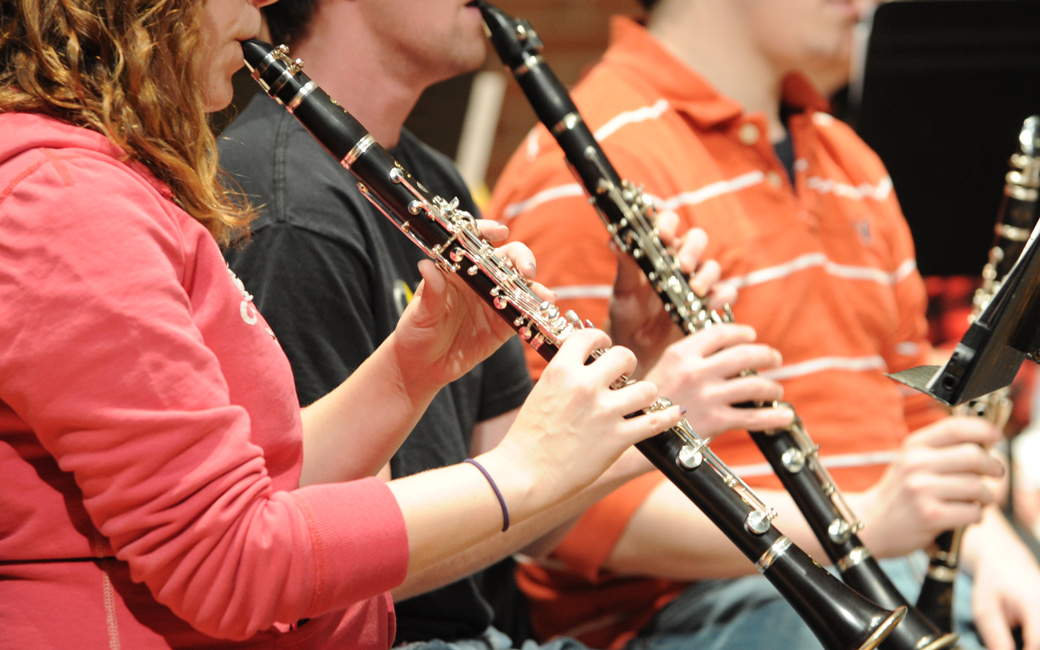Composition Concentration
The composition program at Towson strives to integrate the best of compositional tradition with the potentials of current music technology.

Video of our composition and music technology students from our recent Prism event.
View degree requirements in the Undergraduate Catalog.
The composition program emphasizes creative work in contemporary music intended for listening, often in concert hall settings, in the tradition of Western Classical music. At the undergraduate level, students can choose between degrees in composition, which emphasize creative work in the development of concert music and composition with a jazz/commercial emphasis. In some cases, you can combine both perspectives. A separate application and performance audition are required for admission to the composition concentration. Faculty members guide students through the various aspects of the audition process.
Integrated Technology
Facilities to support the integration of current music technology in the composition
program include the Creative Technology Lab, the Recording Studio, and Harold J. Kaplan
Concert Hall and the Recital Hall, which both integrate with the Recording Studio
and the Creative Technology Lab for the production and presentation of original multi-channel
audio/visual works created by student composers.
The Creative Technology Lab is a dedicated creative studio for composition majors.
This space is integrated with the two concert spaces (Harold J. Kaplan Concert Hall
and the Recital Hall) to support the creation and presentation of student composers'
work.
The Recording Studio at Towson University Department of Music (RSTUDM) is a state-of-the-art
creative production facility for recording and producing dedicated to student and
faculty work in the Department of Music. Courses on recording techniques are taught
in this facility and one of these courses is a requirement of the BM degree in composition.
New Music Ensemble
The New Music Ensemble is a professional ensemble that presents concerts and recordings of new music each season. The ensemble sponsors master classes and lectures by featured composers and performers, symposia related to the work of the ensemble, and opportunities for student composers to hear and record their own music.